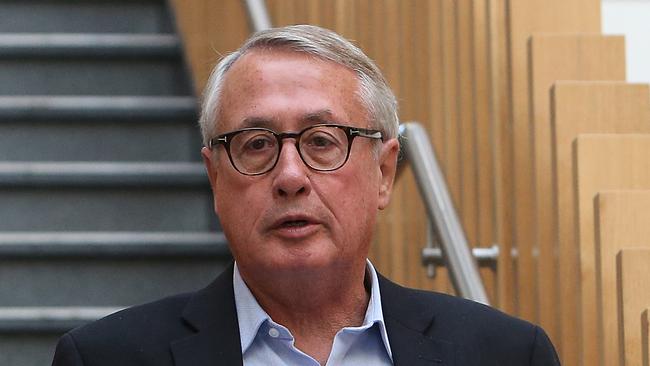Coronavirus: Labor postpones national conference until 2021
Labor will delay its national conference until at least next year because of the COVID-19 pandemic.

Labor will delay its national conference — the forum where its policy platform is created by party members and unions — until at least next year because of the COVID-19 pandemic.
The Australian understands the national executive will meet via teleconference on Friday and vote to defer the national conference, which was to be held later this year. Labor sources said the deferral of the conference, which was to have been held in Canberra, was regrettable but there was no alternative given the escalation of the crisis in Victoria.
“We can’t do anything this year. There are a whole series of hurdles which COVID brought about so it is just not possible,” a Labor source said.
Recommendations to be voted on on Friday, seen by The Australian, also raise the potential of the national conference not meeting before the next federal election.
“In the event that national conference does not meet before the next federal election, the national executive recognises that the federal parliamentary Labor Party will make a statement of the Labor Party’s values, program and intentions for government based on the final draft of the platform,” one of the recommendations said.
Labor’s national executive includes Anthony Albanese, ALP president Wayne Swan and national secretary Paul Erickson. It also includes union leaders and federal MPs Amanda Rishworth, Kim Carr, Nick Champion, Tim Ayres, Kimberley Kitching and Sue Lines.
The Australian understands the potential conference delay was discussed in shadow cabinet.
Hundreds of Labor delegates meet at national conference to vote on a policy platform that theoretically binds the parliamentary party if it wins government.
Working groups are constructing the draft policy platform, which is expected to be finalised by the end of the year.
The draft platform is voted on and amended at the conference.
The Australian has been told there are internal concerns about the Opposition Leader’s directive to scale back the platform from the time when Bill Shorten was leader.
Labor sources say an extensive policy platform can be a convenient way to manage the competing interests of unions and other affiliated interest groups without tying the party to a specific policy when in government.
“The platform is traditionally used to make agreement with the broader labour movement on issues,” a source said.
“It is the labour movement’s way of holding a future Labor government to account.
“When you start cutting that back … you take out a whole lot of potential substance and there are areas where the labour movement won’t accept certain things being taken out of the platform.”
Labor figures are concerned unions and other stakeholders will begin demanding concrete policy announcements before the election to make up for their issues being left out of the platform.
“It risks pushing us further to the left,” a source said.
Other Labor figures played down the impact of streamlining the platform, declaring the process was no more challenging than usual. One of the major fights expected is on the issues of climate change and the environment.
The Labor Environment Action Network wants the party to retain many of its pre-election policies, including a 45 per cent emissions reduction target and a 50 per cent renewables target by 2030. LEAN is also pushing for Labor to maintain its support for an independent federal Environmental Protection Agency.
The Australian Workers Union, however, wants a stronger focus on job creation in traditional industries and has called on the party to adopt the Coalition’s 2030 Paris targets. AWU national secretary Daniel Walton said last week the policy positions advocated by LEAN would be “devastating for the livelihoods of blue-collar workers”.




To join the conversation, please log in. Don't have an account? Register
Join the conversation, you are commenting as Logout